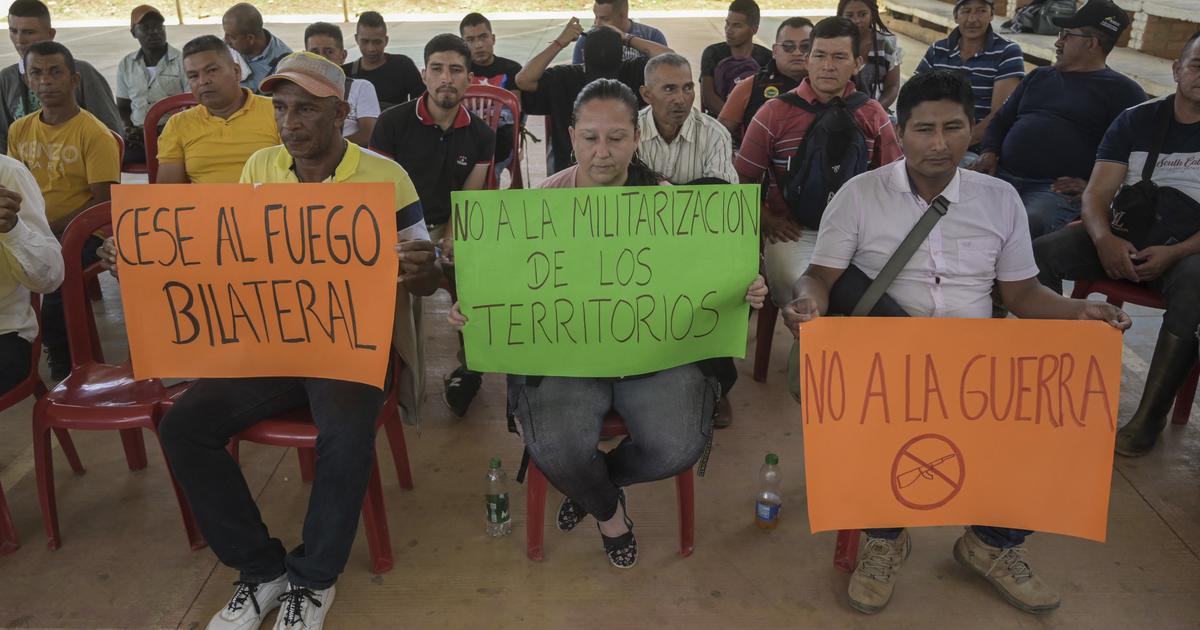The government of Colombia and the National Liberation Army (ELN), a far-left guerrilla group, announced Tuesday in Havana the extension for six months of the ceasefire in force since August.
“We have agreed to extend the bilateral, national and temporary ceasefire from 00:00 on February 6, 2024 for one hundred and eighty (180) days,”
indicates a document published on X (formerly Twitter) by both parties.
In this document, on which the signatures of the leaders of the two delegations appear, the ELN, the last active rebellion in Colombia, also undertakes to
“suspend”
the kidnappings.
“The National Liberation Army (ELN) to contribute to the development of the bilateral, national and temporary ceasefire unilaterally and temporarily suspends detentions of an economic nature
,” it is written.
The kidnapping by the rebel group at the end of October of the father of Colombian footballer Luis Diaz, released 12 days later, had jeopardized the peace process begun at the end of 2022. In December, during the previous round of negotiations in Mexico, the ELN committed to suspending kidnappings
“as part of the extension of the ceasefire”
in Colombia.
Discussions with armed groups
Earlier on Monday, the two sides postponed the conclusion of the sixth round of their talks which began on January 22 in Havana.
Shortly before, the ELN had indicated, in a press release, that measures were
“taken to resolve crisis factors”
in order to find an agreement on an extension of the ceasefire, signed in June in Havana and in force since August 3.
This ceasefire, which expired on January 29, had already been extended by seven days last week to give negotiators additional time.
The latter had expressed from the start of this new round of discussions their intention to reach an agreement to extend the truce.
The Colombian Defense Minister, Ivan Velasquez, even made the trip to Havana a little over a week ago to participate in the negotiations.
The closing ceremony is now scheduled for Tuesday morning in the Cuban capital.
Gustavo Petro, the first left-wing president in Colombia's history, has begun talks with the main armed groups operating in the country.
With the ELN, but also dissidents from the Marxist Farc (who reject the historic 2016 peace agreement), paramilitary groups and drug traffickers.
This policy of
“total peace”
faces numerous obstacles and is severely criticized by the opposition, while some of these armed groups have increased their actions to increase their territorial influence.
More than 90 illegal armed groups
Several rounds of negotiations have previously taken place in Venezuela, Mexico and Cuba, which act as guarantors with the governments of Brazil, Chile and Norway.
Added to these countries are Germany, Spain, Sweden and Switzerland, which are accompanying the talks, as well as a representative of the Secretary General of the United Nations.
Present in the West on the Pacific coast and in the northeast bordering Venezuela, the ELN, whose numbers are estimated at 5,800 fighters, has challenged the Colombian state since its birth in 1964 in the wake of the Cuban revolution.
In 2016, Bogota signed a historic agreement with the country's largest guerrilla group, the Revolutionary Armed Forces of Colombia (Farc), which laid down its arms.
In total, more than 90 illegal armed groups are currently active in Colombia: dissidents of the FARC, ELN, heirs of the far-right paramilitary groups of the 1990s and simple drug trafficking gangs, such as the formidable Clan del Golfo, according to the independent Colombian think tank Indepaz.

